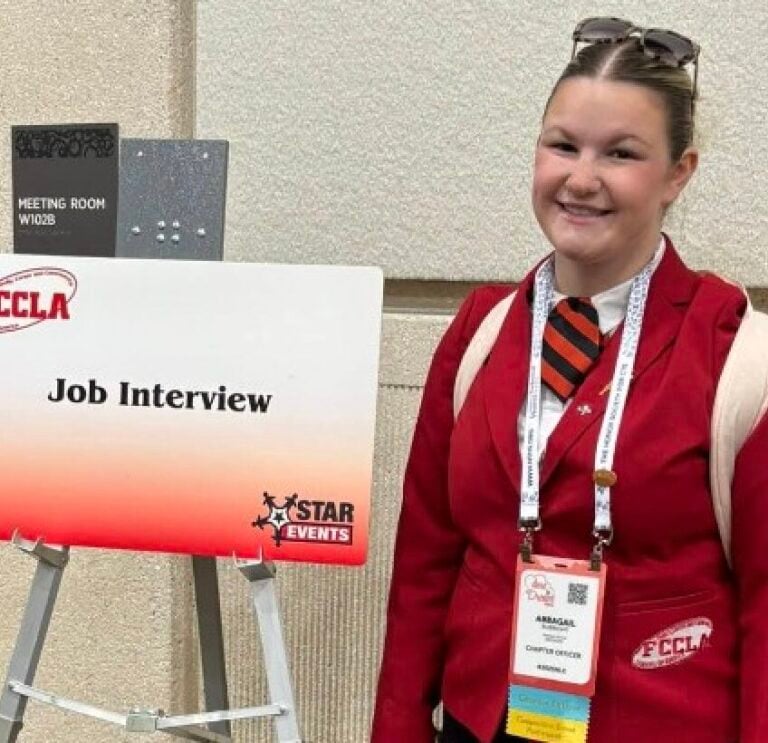This may come as a surprise to many Americans.
Not one single Baptist in this country belongs to the Southern Baptist Convention (SBC).
There is much publicity these days about the pronouncements of that organization, making it appear that it stands for and speaks on behalf of all southern Baptists.
In truth, its like any other organization. It speaks only for itself. And, unlike most groups, it is not an organization of people.
It’s an organization of other organizations. It’s an organization of churches whose members are equally Baptist, whether their church belongs to the Southern Baptist Convention or not.
For instance. My sister belongs to a Baptist Church which belongs to the Southern Baptist Convention. She doesn’t belong to the Convention. In fact, she disagrees with many of their pronouncements. I belong to a Baptist Church which doesn’t belong to the Southern Baptist Convention. Even if I believed in all it says, that would not make me a member of the Southern Baptist Convention.
The bedrock beliefs and foundational stones of the Baptist church of America go back to the 17th Century and the persecuted Baptists of this new country. Our leader was Roger Williams.

The three driving and unifying principles of our Baptist faith are opposition to infant baptism, a strong and almost fanatical belief in the separation of church and state, and—perhaps the most compelling—the priesthood of the believer.
From the first words which fell upon my infant ears from Baptist pulpits, I’ve heard “priesthood of the believer” uttered over and over.
However, in recent years these bed rock beliefs have been pushed aside by such Baptists as the leaders of many churches as well as the hierarchy of the Southern Baptist Convention.
These sacred precepts are the great strength of our denomination. So strong in fact that we are the denomination most responsible for the First Amendment of religious freedom of our US Constitution.
My parents were both strong Baptists. My father was a deacon and my mother taught Sunday school. But many Sundays, we kids would ride home listening to my father lambast the preacher for things he had said which my dad did not believe. He would be met with icy silence from my mother who bought every single word the reverend spoke.
They were joined together as Baptist by the “priesthood of the believer.” We have no Pope. No Bishop. No boss. Except God, through Jesus Christ. And certainly not the Southern Baptist Convention.
The Southern Baptist Convention was organized in 1845 in Augusta, Georgia.
Southern Baptists have a national organization known as the Southern Baptist Convention with headquarters in Nashville, Tennessee. Approximately 47,000 churches align with the SBC. We also have state conventions made up of churches within their borders.
Baptists have roots in the Free Church movement. The separation of church and state was the bedrock of this movement. Congregations in the Free Church movement did not seek or receive government endorsements or funding to carry out its work. These congregations advocated personal conversions based upon experiences each person had with God. The authority of scripture through personal interpretation and the autonomy of local churches were their guiding lights.
The Free Church movement’s influence upon Baptists as they formed the Southern Baptist Convention 1845 was prevailing. Baptist Churches in the 19th and later on in the 20th centuries chose to unite for the purpose of missions and evangelism. Sharing the gospel, baptizing converts by immersion, starting new churches, and pooling resources to support missionaries enabled people from all walks of life to work together to address the physical and spiritual needs of people all around the world. They worked through volunteers under the leadership of professional ministers.
At the same time, Southern Baptists refrained from adopting creeds or formulating confessions of faith that were regarded as complete statements of faith, having any quality of finality or infallibility. At all times and in every setting, local Baptists were free to revise statements of faith they deemed wise and necessary for their congregations.
Confessions of faith were only guides, having no authority over conscience or individual church policies. They were never to be used to hamper thought or investigation of other realms of religion.
For the most part, these guidelines were followed by the Convention and church leaders. The emphasis was “what are we doing for others?” Not “what we believe.” Every time some person or group tried to enforce strict doctrinal uniformity, there was divisiveness and chaos.
In recent years, however, denominational and church leaders have sought to unite Baptists through doctrinal unity. The ancient canons of priesthood of the believer, separation of church and state, and autonomy of the local church have been usurped by an allegiance to statements of faith and polity passed by messengers to the Convention’s annual gathering.
Churches that do not align with the SBC’s statements of faith are expelled.
In truth there is probably no religious organization in America today that is more anti-Baptist than the Southern Baptist Convention. Their member churches are beginning to realize this and leaving in droves.
In a short period of time, this antiquated and self-serving organization — which did so much good at its inception and early years — will fade out of existence. The faith of our fathers, the faith of Roger Williams, the faith of all Baptists… will prevail. There is a wise old saying. “Religion is what’s left after the church burns down.”
Bill Cunningham is a retired Kentucky Supreme Court Justice.


















Justice Cunningham, this is the only way I know how to contact you. Please forgive me if it is not the right platform.
I am a member of a tiny Southern Baptist church in Wingo (Graves County), KY. Currently there are only four members left (aged 87, 74, 69, and 62). Our pastor passed away earlier this year and we have not been able to replace him. Our last remaining trustee was in a car accident in March 2024 (which required brain surgery) and can no longer act in that capacity. We believe, it is time to close the doors permanently and would like to gift the building and grounds to Franklin Graham’s Samaritan’s Purse due to their many months of restoration work in Mayfield and Graves County after the devastating tornado a couple years ago. We have also considered gifting it to St. Jude’s Children’s Hospital for their many years of charitable work.
Our problem is the Southern Baptist Association (SBA) of Graves County. Although, Fellowship Baptist (to my knowledge) has been a member of the SBA since 1966 and paid dues until it was no longer ale due to a significant decline in membership–membership has not exceeded six or eight members for eight or more years–we have not received any help or guidance with church growth and/or revitalization from the SBA despite many repeated requests.
Now that it has become obvious that the doors must close, the SBA has let us know that our ONLY option is to give the church and its assets to them. We have been cajoled, intimidated, and deceived in an attempt to force a speedy transfer. The head of the Graves County SBA office, even let it slip a few weeks ago, that they already had plans for the property and were ready to implement them “tomorrow”.
We have contacted two law firms in Paducah but both said they did not have the expertise to deal with this situation. Yet, if the SBA can expel churches, then there must also be a way for a church to resign from the SBA. We implore you…please give us some idea of where to go or what to do next. We want to withdraw from the SBA and do not want to be forced to dispose of this property in a manner that does not give any of us heartfelt peace.
Couldn’t have said it better myself. Thank you for pointing us back to our foundation
Amen. Thank you Mr Cunningham. You have reinforced how I was raised as a Baptist. I will always support the autonomy of the individual church and especially the priesthood of the believer.